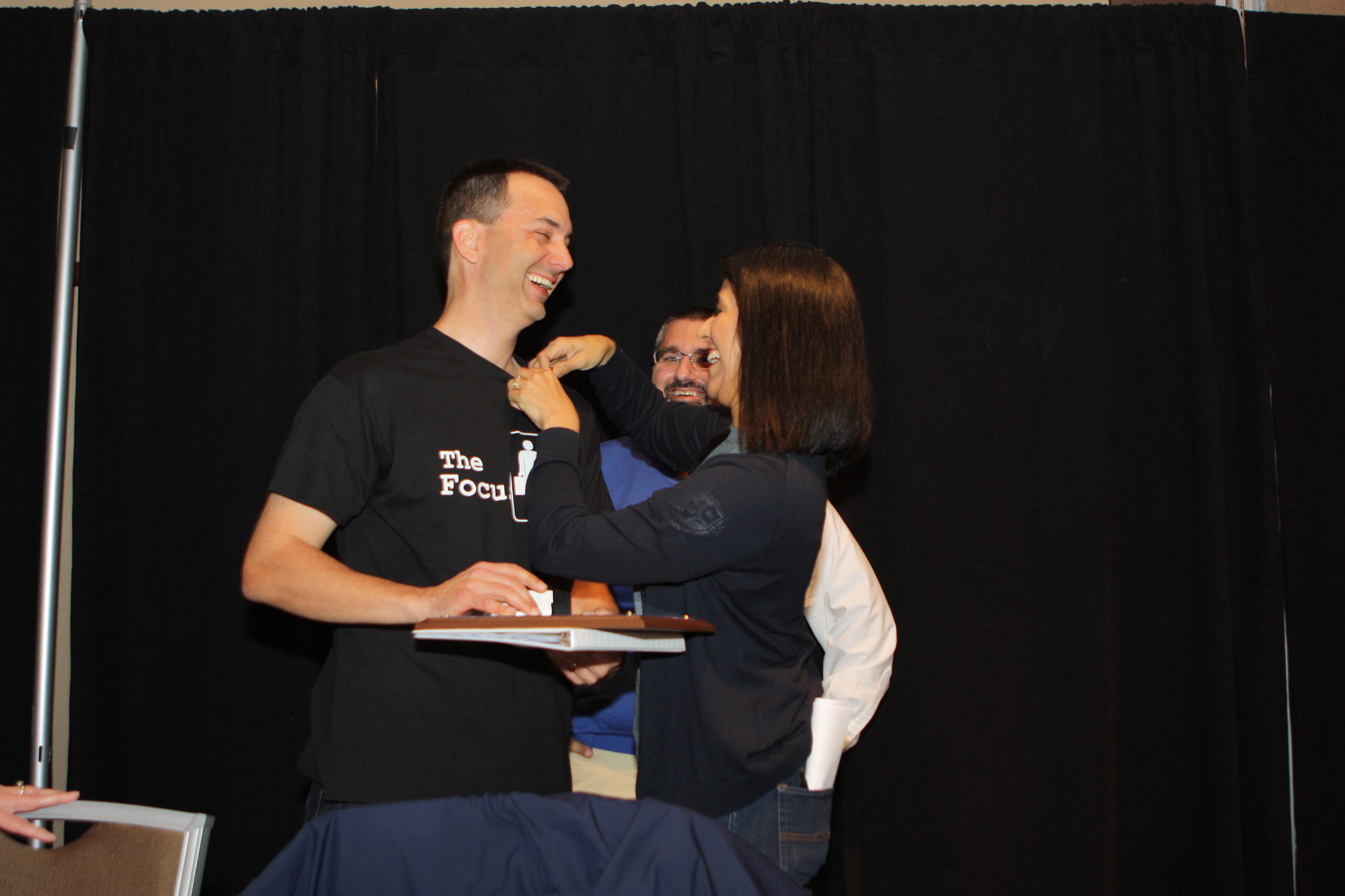
It’s the highest award that MIPA gives to a journalism adviser. To win the award, an adviser is judged according to documentation and evidence — in portfolio form — provided by students.
Last year, students at Midland High School’s Focus newspaper put together a portfolio to recognize their adviser, Jim Woehrle, and he was selected by a panel of previous Golden Pen nominees to be the 2016 honoree.
“Mr. Woehrle shaped the journalism program at Midland High to encourage students to fulfill their creative vision, and voice their opinions to the world,” editors William Hackbarth and Megan Nyland wrote in nominating their adviser.
Woehrle has been teaching for 17 years at Midland High. MIPA caught up with him at the end of last year to talk about his job, scholastic journalism and and the connection that student journalists build with each other.
MIPA: What is the most rewarding part about teaching for you, specifically in the journalism courses?
Jim Woehrle: The most rewarding part about teaching journalism I would say is seeing the growth that the students show, content that they develop and the skills that they develop and perfect as they are working on the newspaper. Also, when they see how relevant the learning is and how everything that they do gets read by an audience and gets seen in the real world.
MIPA: How do you go about teaching the importance of journalism to high schoolers who might not understand that what they write has consequences and rewards?
JW: A lot of it has to do with the fact that they are telling people’s stories, and they take that responsibility very seriously to do that correctly and to present it in a way that is interesting and relevant to their readers.
I think they take great pride in the final product that they create and so they want to make sure that is as good as possible. They also see tremendous value in working with others in a process to create something greater than themselves, which is this newspaper that they produce every month. They bond together in that process by relying on each other, that bond strengthens and they become almost kind of a family.
MIPA: Do you think that there is a big difference between your English classes and your journalism classes?
JW: The journalism classes have a far greater family dynamic than a typical English class does because we spend so much time together outside of a typical classroom period. When we are working on the paper we are staying until 10 p.m. at night three nights in a row during our production week, so the bond is much stronger there. Starting tomorrow we are going to do Secret Santas in both of our journalism classes and we are having almost 100 percent participation in both classes, whereas in my other English classes we wouldn’t even do Secret Santas. Although they like each other, there just isn’t that much of a bond.
MIPA: How did it feel to win the Golden Pen Award?
JW: It was a shock. I had been nominated nine or 10 years ago so I thought, “That was it. That was my chance. My time had passed.” It wasn’t even on my radar. I was looking down and checking my phone. I might have been reading Twitter or something when the nominees were announced. When my name was announced it was a complete surprise, and I looked over at all of my students and they were kind of looking at me knowingly because they had been working on it since Christmas. It felt great. It was definitely one of the most pleasant surprises of my career.
MIPA: What is the most difficult part about teaching journalism that you have found over the course of your years?
JW: There are a lot of hard parts. My first couple years it felt like the hardest part was getting people to make their deadlines. Now the hardest part is pushing people to do a little bit better than what they are capable of doing. It is having them push the envelope in terms of attempting skills that are just out of reach from where they are comfortable. Also, presenting the news in a way that is kind of fresh and creative while not relying on just the same old cliches and stories. Then, of course, the production cycle. When a story has fallen through, the design doesn’t look good or a source decides not to talk to the paper, that can be really difficult in journalism and especially in a newspaper class. But the highs are higher and the lows are lower compared to a typical English class, where things are pretty steady.
MIPA: Do you have any really good stories planned for this semester?
JW: We have always said, “Try to make each issue a little bit better than the issue before it.” Our most recent issue — the one that came out in late November — was a huge leap in publishing, so I am hoping they can take a similar leap when they work on their next issue tomorrow.
One of the biggest changes my career has taken is the relationships I have had with my students. When I started off I thought relationships were something that middle school teachers had or elementary school teachers had. But I would say that the bond is very strong being a newspaper adviser, and the bond that the newspaper staff has among themselves is one of the most rewarding parts of the career.
